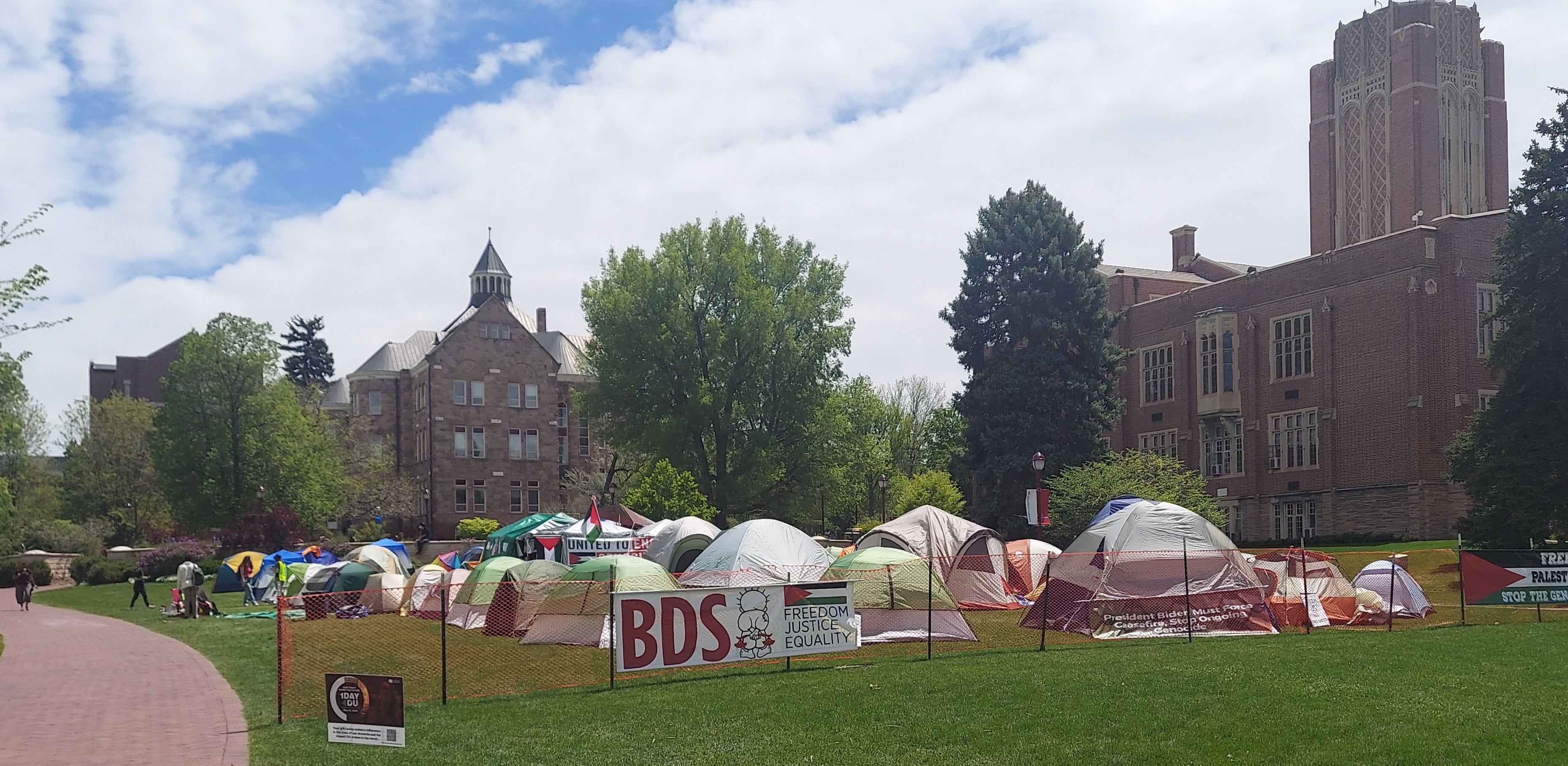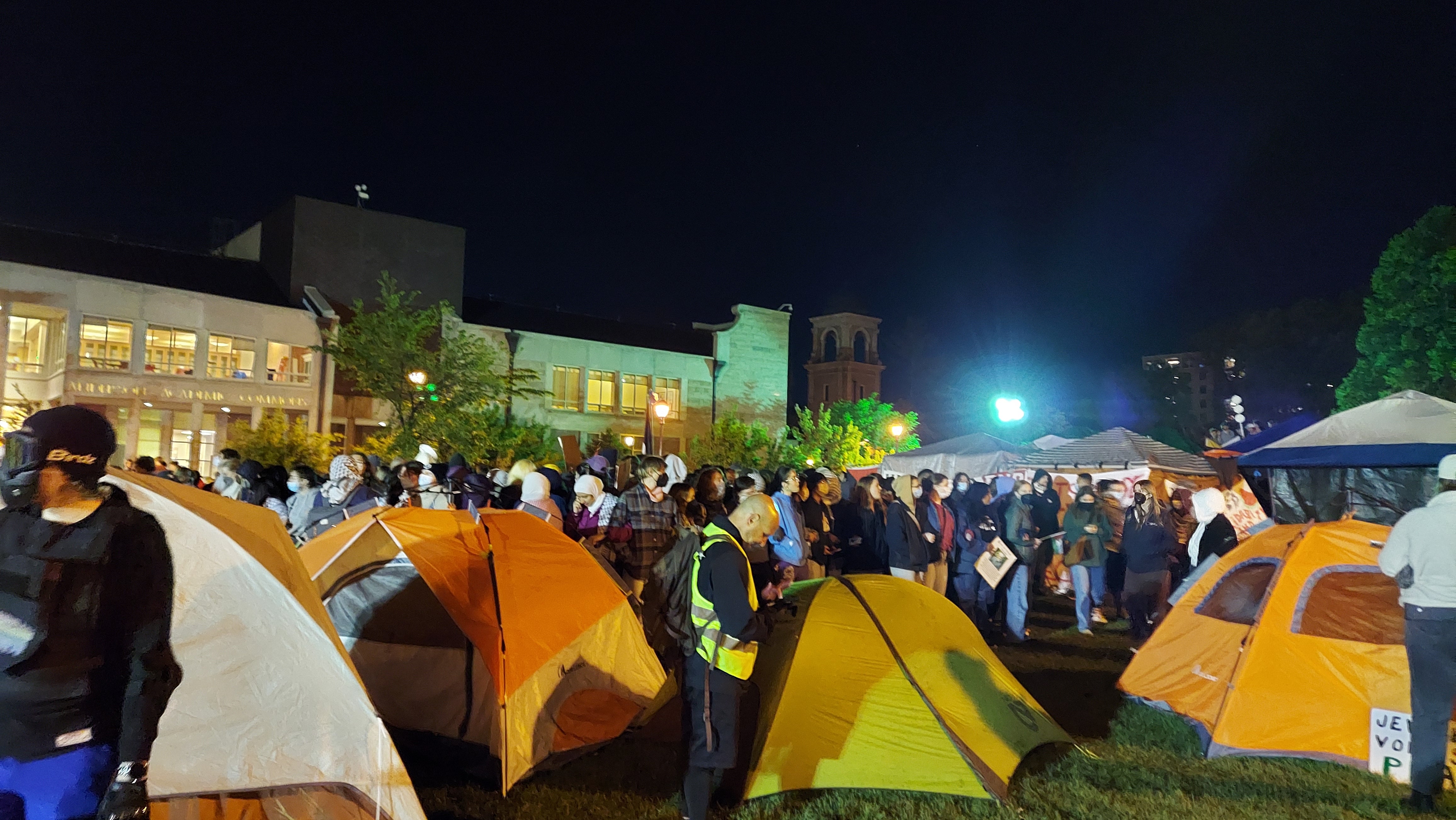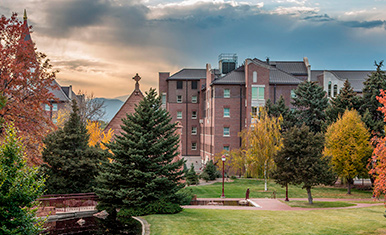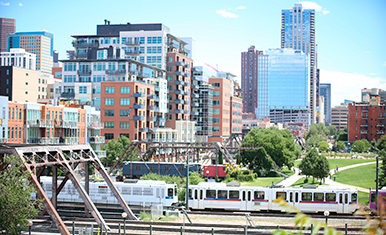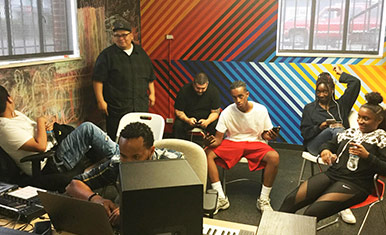The Possibility, Opportunity, and Promise of Student Protest
By Tom I. Romero II, J.D., Ph.D.
Professor of Law & Affiliated Faculty, Department of History
Faculty Director, Interdisciplinary Research Institute for the Study of (in)Equality (IRISE)
On May 29, students who have organized themselves under the name DU4Palestine voluntarily took down the encampment they erected in early May. Part of a nationwide student-led movement protesting thousands of deaths of elders, women, and children in Gaza resulting from Israel’s response to the Hamas attack on October 7, 2023, the DU encampment was the last of those remaining among Colorado’s institutions of higher education.
Around the country and including in Colorado, many college and university administrations responded to the encampments with force, calling in the local police to clear encampments and disperse protests. Students and faculty members were arrested on many campuses and, in some cases, beaten. Buildings were occupied. Graduation ceremonies were disrupted, and suspensions and punishments were issued and enforced.
Over the course of several weeks, DU students peacefully and with great risk to themselves were part of this larger nationwide movement. While the university did not experience some of the violence that existed at other campuses, it nevertheless echoed the same struggle happening at over 90 campuses across the United States. Like every other campus, most prominent among their concerns was the University’s investment portfolio in those industries, countries, and products contributing directly and indirectly to the massive loss of human life. Also, on call for us at DU was the university’s stated commitment to “civil” discourse and the challenge that student encampments brought to concepts of free and hateful speech; the application of critical thinking outside of the classroom; and the agency (if any) of students to make a collective difference and be engaged with a world beyond themselves and that of DU.
As I was able to bear witness on few occasions to the encampment, what struck me most was the failure of higher education leadership to activate the concern, care, and passion of our students in common cause—that of using a university education to think more critically and in sophisticated ways about the world in which we all live and whom these students are already preparing themselves to lead. For all the policing, politicking, and consternation displayed by the university, the institution’s leaders seemingly failed to appreciate that the student encampments at DU and elsewhere across the country provided the possibility of a “learning” and “teaching” space that compels us to think more deeply and critically about morality, democracy, decency, and a common humanity. The encampments provided the opportunity to operationalize our values as a “private university committed to the public good” that is often messy, contradictory, and rarely conciliatory. And most importantly, the encampments provided the promise of envisioning a more just future, one free from the “isms” and related institutional failures and systemic oppressions of the past.
While a much fuller understanding of the encampments movements of Spring 2024 is yet to be written, this movement and moment for possibility, opportunity, and promise is not new. It’s been part of the landscape of higher education since at least the 1950s, if not earlier. From the anti-McCarthyism actions in the 1950s, to the anti-Vietnam War protests on college campuses in the 1960s, to the anti-apartheid demonstrations in the 1980s, to more recent movements for Black Lives on college campuses in the 2010s, student movements have fundamentally challenged some of the worst excesses of a status quo. Also not new is the reactionary backlash by university leadership and media, the anti-higher education “hot-takes” by political pundits, or the polling that students have no right to be engaged in political activity on their or any campus.
As we in higher education reflect and act on this moment; and as students, faculty, and staff are subject to seemingly arbitrary and over-harsh disciplinary sanction, we have an obligation to understand and engage meaningfully with students as moral actors and part of a longer arc in the history of justice. Across the nation, including DU on Carnegie Green, student protesters today stand literally on the same ground as their predecessors. In the process of organizing against what they perceived as injustice, student protests have and will continue to make, and remake “American higher education in their own image—not completely and perhaps not permanently, but in significant, lasting ways.”
